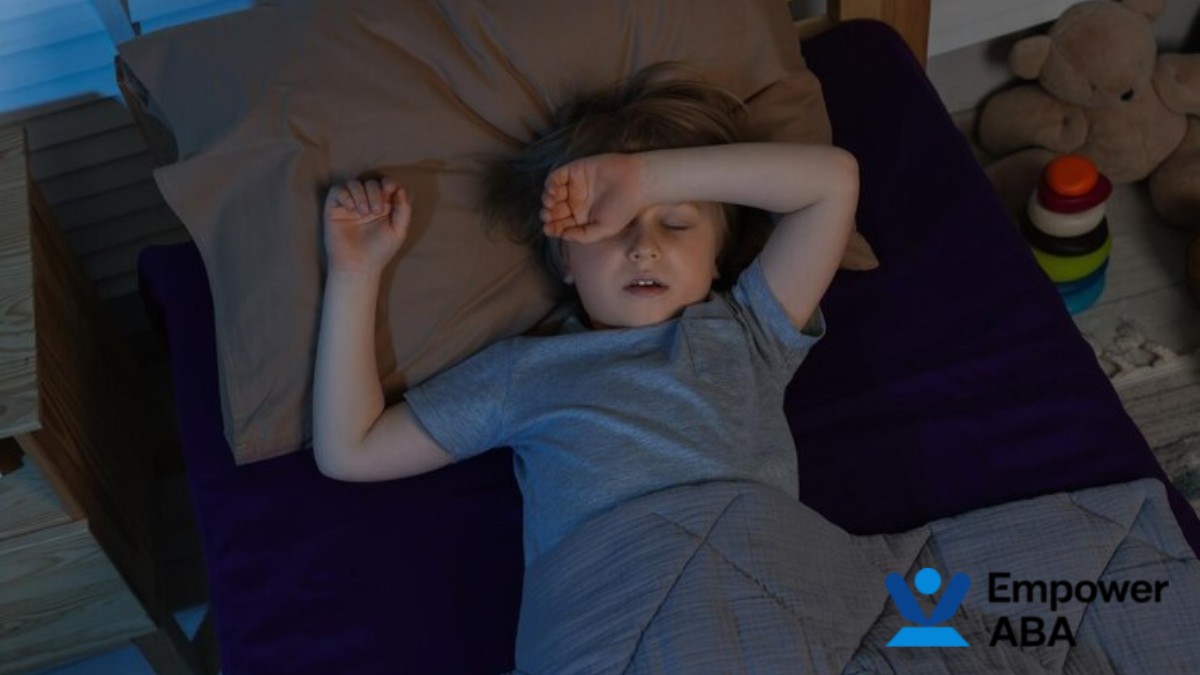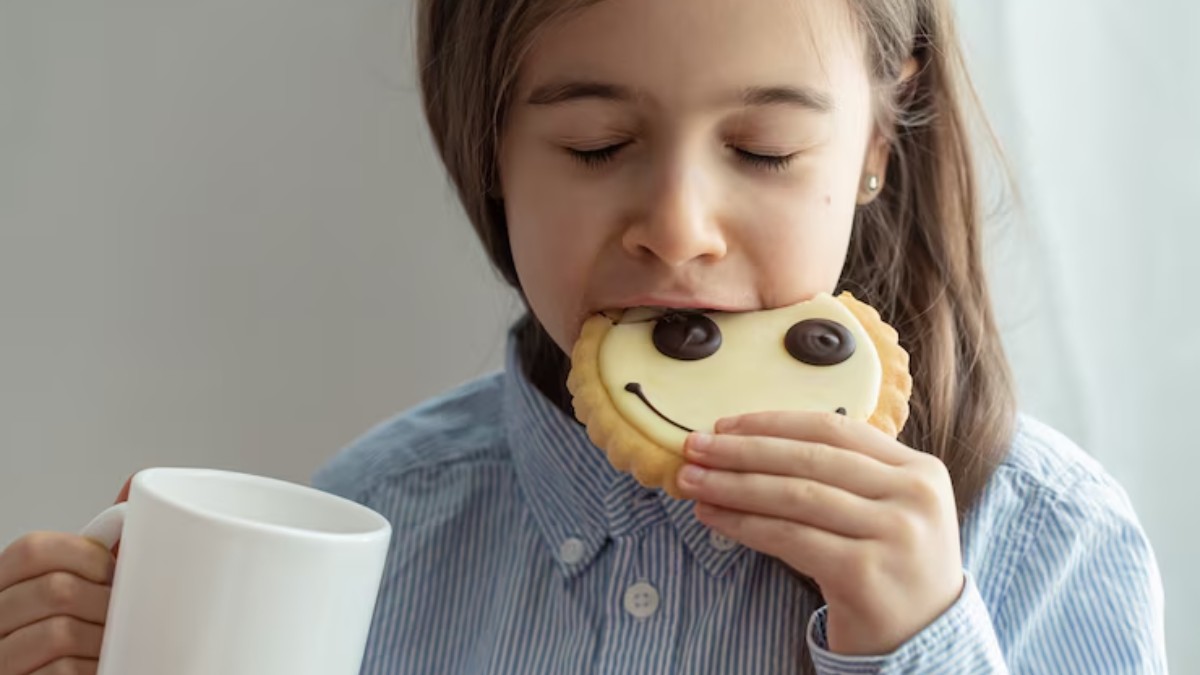Key Points:
- Children with autism may be more vulnerable to sugar addiction due to sensory sensitivities, behavioral patterns, and biological factors.
- Excessive sugar intake can worsen symptoms such as irritability, hyperactivity, and focus issues in children with autism.
- Parents can manage autism sugar addiction through practical dietary strategies, consistent routines, and professional guidance.
Every parent wants the best for their child, and when raising a child with autism, even everyday things—like snacks—can come with unique challenges. Many parents notice a strong preference for sugary foods in their autistic children and wonder, “Is this just a sweet tooth, or something deeper?” When sugar cravings seem excessive, it’s not only frustrating but can also raise concerns about behavior, mood swings, and long-term health.
Let’s take a closer look at the connection between autism and sugar addiction—what’s really going on, how it affects your child, and what can be done to help.
Is Sugar Addiction More Common in Children With Autism?
Yes, children with autism can be more prone to sugar addiction. There are several reasons why this happens, from sensory processing differences to emotional regulation challenges.
The idea of “sugar addiction” in autism isn’t just a trendy phrase—it’s a real concern supported by growing observations and emerging research. Children on the autism spectrum often gravitate toward sugary foods, not only because of taste, but because sugar can create a soothing or stimulating effect in the brain. Understanding why this happens can help parents respond with care and clarity.

Why Does Sugar Addiction Happen in Autism?
Understanding the why behind sugar cravings is the first step to managing them. Several biological, sensory, and emotional factors make children with autism more likely to struggle with sugar addiction.
1. Brain Chemistry and Reward Systems
Children with autism often have differences in how their brains respond to rewards. Sugar triggers the release of dopamine—a “feel good” chemical—in all of us, but in kids with autism, this response can be heightened, making sugar more addictive.
2. Gut Health Imbalances
The gut-brain connection is stronger than most realize. Many children with autism experience digestive issues. A diet high in sugar can feed harmful gut bacteria, which may worsen digestive problems and increase cravings. Some studies suggest that an imbalanced gut can even send signals to the brain that trigger sugar cravings.
3. Sensory Preferences
Autistic children often have strong sensory preferences. Sweet foods tend to have predictable textures and flavors, which can be comforting in a world that sometimes feels overwhelming. Crunchy, sticky, or chewy sugary snacks may also offer soothing oral stimulation.
4. Routine and Rigidity
Routine is essential for many kids with autism. If sugary snacks become part of that routine, breaking the habit can feel emotionally distressing. Sugar may become tied not just to taste, but to a child’s need for predictability and control.
How Does Sugar Addiction Affect Children With Autism?
While sugar might offer temporary comfort or energy, too much can interfere with well-being and behavior in significant ways.
Mood and Behavior Changes
Excess sugar can cause mood swings, irritability, and difficulty regulating emotions. For children with autism who already face emotional regulation challenges, sugar can amplify meltdowns and make transitions harder.

Sleep Disturbances
Sugar before bedtime is a bad idea for most kids—but for children with autism, who often struggle with sleep already, it can be even more disruptive. Sugar spikes and crashes can lead to restless nights and daytime fatigue.
Increased Hyperactivity
While sugar doesn’t “cause” ADHD, it can contribute to hyperactivity and impulsivity, especially in sensitive children. Parents may notice that after consuming sugary foods, their child becomes more restless or harder to redirect.
Poor Focus and Learning Challenges
High sugar intake can also impact focus and cognitive function. In children with autism, this can mean added difficulty during therapy sessions, schoolwork, or learning new routines.
What Can Parents Do To Help Break the Sugar Cycle?
It’s not easy to change dietary habits—especially with a child who thrives on routine and predictability. But small, consistent steps can make a big difference.
Start With These 5 Practical Tips
Parents don’t have to go cold turkey. Gradual changes are more effective—and more sustainable.
- Swap Sugary Snacks for Healthier Options: Introduce naturally sweet foods like berries, apples, or bananas. Try blending fruits into smoothies or freezing grapes for a treat with less sugar.
- Create a Food Routine With Choices: Children with autism often appreciate having choices. Offer two healthy options instead of removing sugar altogether. This gives your child a sense of control.
- Use Visual Schedules for Meals and Snacks: Predictability can reduce anxiety. Visual cues for meals and snack times help children know what to expect and when, decreasing the urge to ask for treats.
- Set Consistent Meal Times: When kids know food is coming, they’re less likely to demand sugary snacks. A predictable routine around eating helps stabilize blood sugar and behavior.
- Involve Your Child in Meal Prep: Help your child explore new foods by involving them in cooking. This builds comfort with unfamiliar items and shifts the focus from what they can’t eat to what they can enjoy.
When Should Parents Seek Professional Help?
Sometimes, sugar cravings persist despite your best efforts. That’s when involving professionals can help unlock deeper strategies and support.
Red Flags That Call for Expert Support
If you notice these signs, it might be time to consult a specialist:
- Your child only eats sweet foods and resists all others
- Meltdowns occur frequently when sugary items are restricted
- Behavior and sleep are noticeably affected by sugar intake
- Dietary limitations are affecting health or growth
Working with a team—such as a dietitian, pediatrician, or ABA therapist—can help address both the behavioral and nutritional sides of the issue.
The Role of ABA Therapy in Addressing Sugar Addiction
ABA (Applied Behavior Analysis) therapy is widely used to support children with autism in building functional skills and reducing problematic behaviors—including those tied to food.
How ABA Therapy Can Help
ABA therapists can assist with:
- Gradual food exposure and desensitization
- Reinforcement strategies to reward healthy choices
- Visual schedules and routines to reduce anxiety around meals
- Support for caregivers in creating consistent meal-time behaviors
When sugar addiction is approached as a behavior to be reshaped—not punished—it becomes easier to help your child make better choices without stress or shame. This mindset also opens the door to exploring how nutrition impacts behavior and development, as discussed in Dietary Interventions for Autism Spectrum Disorder: A Guide.
Take the Next Step With Empower ABA
Supporting your child’s development takes a village—and sometimes, that includes expert care. If you’re navigating autism sugar addiction and need help guiding your child toward healthier habits, Empower ABA is here to help.
We offer ABA therapy in Virginia, New York, and New Jersey, tailored to meet the unique needs of each child. Our compassionate team works alongside families to build routines, reduce problem behaviors, and foster independence—all with warmth, patience, and expertise.
Get in touch today to learn more about how ABA therapy can support your family’s journey. Whether it’s managing sugar cravings or building life skills, we’re here every step of the way.

